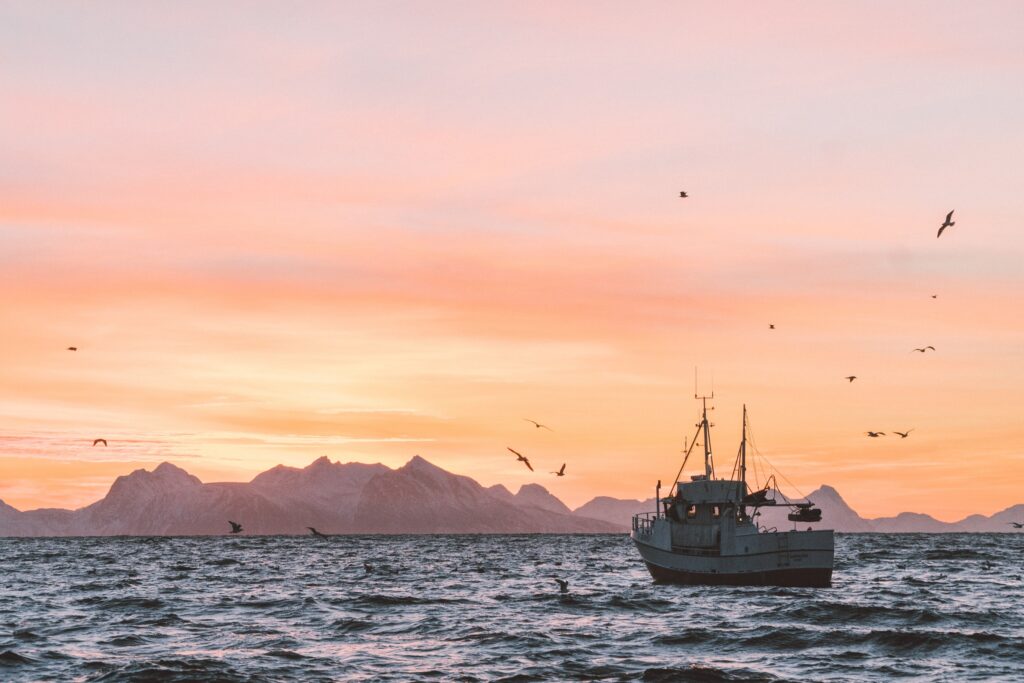EU’s ambitious marine sustainability initiative aims to promote seafood security, commissioner says
European leaders have outlined how marine environment protection measures could safeguard the EU’s seafood sectors and improve food security in the 27-member bloc.
The measures, recently announced by the European Commission, are also designed to promote an energy transition in the EU’s fisheries and aquaculture sector. They aim to protect and restore ecosystems, and promote what the commission describes as sustainable and resilient fisheries which should ensure that catches do not fall significantly over time.
Announcing the measures, the European Commissioner for Environment, Oceans and Fisheries Virginijus Sinkevičius said they should reduce the impact of fishing activities on the marine environment. This, the commission hopes, could ultimately have knock-on benefits for consumers.
“We want to establish a Pact for Fisheries and Oceans to work together with everyone to ensure sustainable and resilient fisheries, protect and restore our marine ecosystems, make the sector profitable and strengthen our food security in the long-term,” she commented.
Ms Sinkevičius said the measures responded to commitments made by the EU in the “historic agreement” during a biodiversity conference at the Cop15 in Montreal.
“We are also promoting an energy transition to help the sector adapt its vessels and equipment, improve working conditions and move towards renewable, low-carbon energy sources,” she said.
“We know this is a challenging task. For this reason, the transformation will be gradual and we will promote dialogue between all communities to lay the foundation for a resilient fisheries and aquaculture sector.”
The Pact for Fisheries and Oceans will aim to ensure the implementation of the Common Fisheries Policy, with the intention that member states and fishers, along with producer organisations, civil society, scientists and regional advisory councils will all be involved.

Frans Timmermans, Executive Vice-President for the European Green Deal, said that much of the EU’s economy “depends on nature”.
He added: “Fisheries are quite possibly the sector where this link is most direct. Europe’s marine ecosystems and the fish, shellfish, algae and plants that are part of them are crucial to the economic viability of fisheries.”
In turn, experts have said that supplies of sea food are heavily reliant on a healthy marine environment, a key reason why the EU wants to promote sustainability in the sector.
“With these proposals, we aim to build a stable relationship with our seas,” Mr Timmermans commented. “The European Commission will work with local fishing communities, the aquaculture and fisheries sector and help them adopt sustainable practices, from reducing energy usage to using more selective fishing gear.”

As part of its efforts to protect marine ecosystems and seafood supplies, the European Commission is asking member states to phase out bottom trawling in what Mr Timmermans described as “fragile areas”. The EU has an additional aim to phase it out in all marine protected areas.
“When we ensure the sustainability of fisheries we invest in the resilience and future of the sector and its workers,” he added. “Working together, we can find the right balance and establish healthy marine ecosystems all over Europe.”
Thanks to measures undertaken so far, between 2009 and now there has been a 12-fold increase in the quantity of fish stocks harvested sustainably in the EU.
The EU would like 30% of the bloc’s sea area to be designated Marine Protected Areas, compared to 12% now, and for 10% of sea area to be Strictly Protected, up from less than 1% currently. Another ambition is for the fisheries sector to reach the “maximum sustainable yield” in all sea basins.
Sial Paris Newsroom recently reported how the EU wants to improve farm animal welfare, hopefully leading to similar spin-off benefit to consumers of improved food security thanks to reductions in disease outbreaks.
Join us at SIAL Paris as exhibitor Join us at SIAL Paris as visitor
